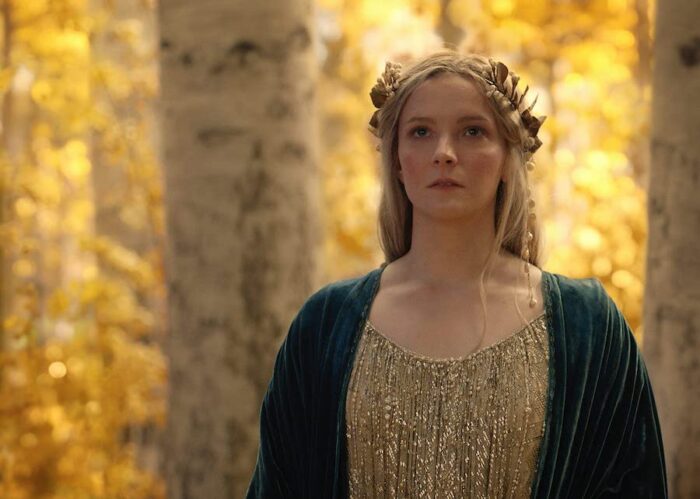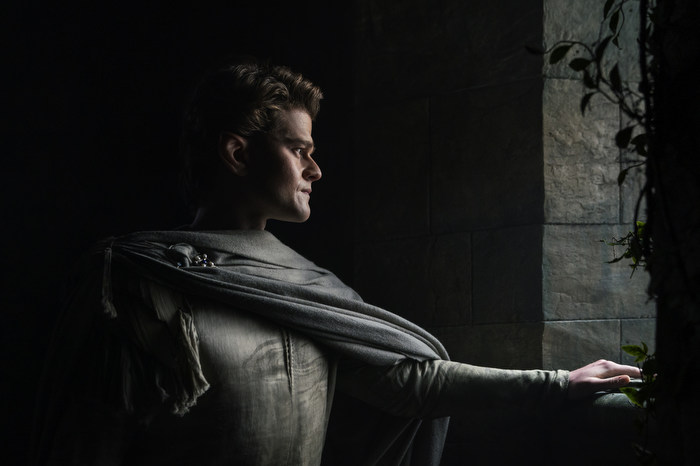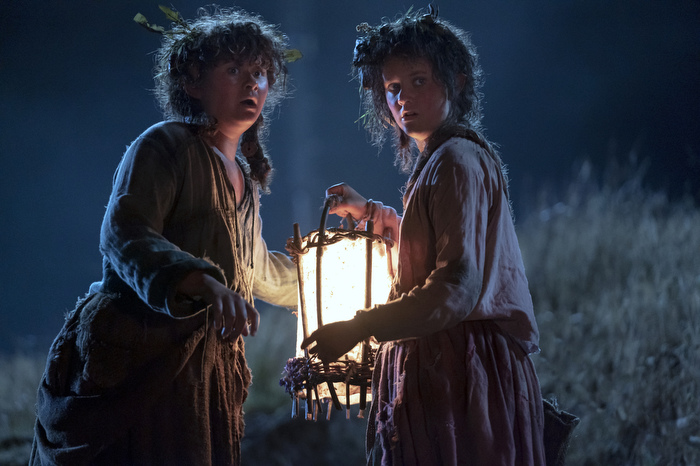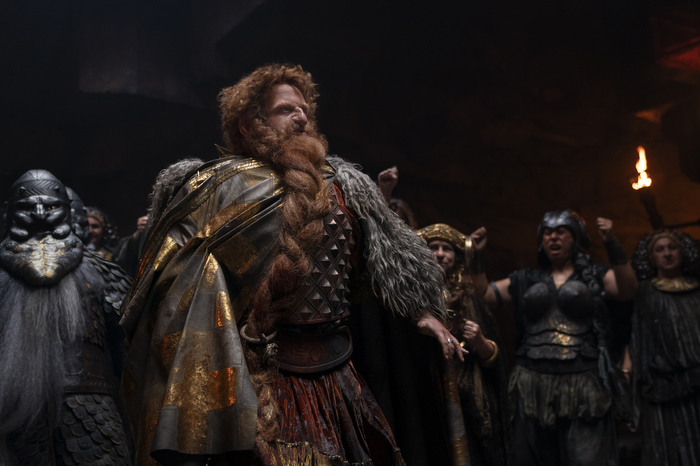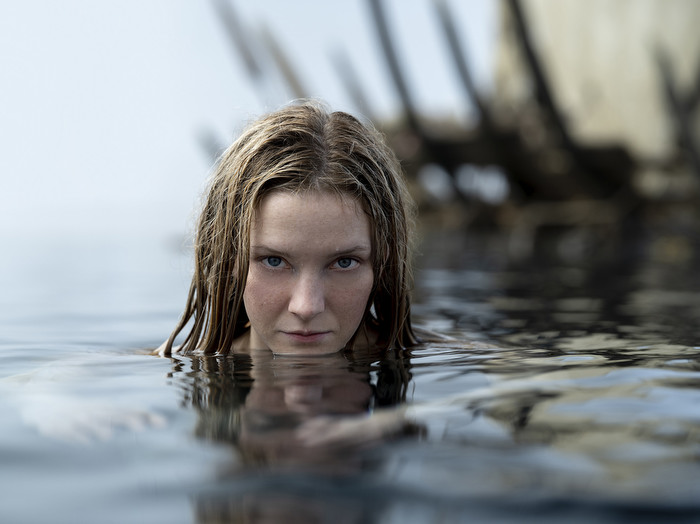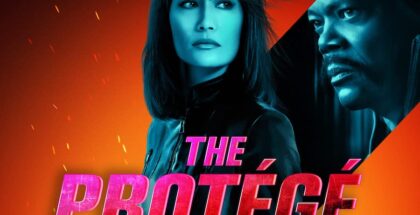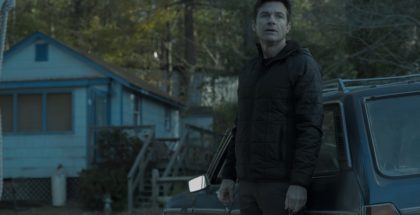First look review: The Lord of the Rings: The Rings of Power
Review Overview
Cast
8Production
8Potential
8David Farnor | On 01, Sep 2022
This spoiler-free review is based on Episodes 1 and 2, both of which premiere on Amazon Prime Video on Friday 2nd September, with new episodes then arriving weekly.
“Nothing is evil in the beginning.” Those are the words of Galadriel at the start of The Lord of the Rings: The Rings of Power, a saga that takes us – 21 years after Peter Jackson’s The Fellowship of the Ring – right back to Middle-earth. If you’re already recognising those words as once belonging to Elrond in JRR Tolkien’s original trilogy, then rest assured: this new series feels as close to the books as Jackson’s first three films did. Taking us back to Middle-earth isn’t the real achievement here – the real achievement is making it seem like we’ve never been away.
It’s inevitable that Amazon’s colossally expensive show will be compared endlessly to Jackson’s adaptations, just as it will also be put next to HBO’s House of the Dragon, a fellow attempt to tap into the Game of Thrones audience years after that fantasy epic concluded. But there the similarities end, as The Rings of Power not only feels like entirely its own thing, but also manages to feel much bigger, warmer and full of surprising potential. It’s a TV show that is ambitious in the scope of its imagination and invites you to immerse yourself in that absorbing expanse.
The biggest gambit, which pays off almost immediately, is deciding to bring along some old faces for the ride (showrunners JD Payne and Patrick McKay only have the rights to The Lord of the Rings and its appendices). And so it is that we’re introduced to a young Galadriel (Morfydd Clark) and Elrond (Robert Aramayo). That, in itself, could have been a disastrous, cheesy notion, but the pair brilliantly find new sides to the youthful incarnations of their characters.
Aramayo’s smirking statesman is a politician through and through, who hasn’t yet had to wield a weapon in battle. Morfydd Clark, meanwhile, follows up her breakthrough turn in Saint Maud with a similarly intense performance. She’s astonishing as Galadriel, bringing an arrogance and short temper to the calm future queen, digging into the way that even elves can make mistakes while still having enough conviction that we root for her in every scenario. Sequences of her in action – both at sea, up a mountain and in shadowy caves – are not only thrillingly physical but also give us little close-ups of eyes that could easily be Cate Blanchett’s.
It’s little surprise, then, that Galadriel emerges as the show’s initial protagonist, her quest for retribution and closure foregrounding the overall plot. Already several hundred years old, in the Second Age of Middle-earth, she is the last remaining elf to still be dwelling on the defeat of the evil Dark Lord Morgoth centuries before. With a personal vendetta against Morgoth, she is determined to track down the remains of his forces – specifically, his second-in-command, Sauron, who she worries is still out there plotting a return. “Evil doesn’t sleep,” she warns the increasingly few people who will listen. “It waits.”
Of course, we know that she’ll eventually be proven right, and the increasingly dark omens of Bad Things Coming will ultimately lead us towards the forging of the rings of power – and the One Ring of The Lord of the Rings fame. And yet, not unlike Better Call Saul, The Rings of Power draws strength from that dramatic tension, rather than let it sap all the suspense away; we’re as much invested in seeing the moral and emotional growth, and turmoil, of these characters as we are in seeing how events will come to pass. (“We had no word for death…” Galadriel tells us early on, with poignant hindsight.)
Over the first two episodes, Payne and McKay make remarkably light work of introducing us to most of the key players on their dauntingly big board. As well as a whole heap of fellow elves who range from portentous to haughty, we’re introduced to Halbrand (Charlie Vickers), a brooding man of action, and Harfoots, essentially an early breed of hobbits, whose grounded, nature-loving community is full of charm and humour. There’s Lenny Henry as Sadoc, an elder who starts to sense things are going awry. There’s the endearing Markella Kavenagh as Nori, an inquisitive, rebellious sort who will only end up causing trouble. We also meet Arondir (the stern, riveting Ismael Cruz Córdova), an elf warrior tasked with keeping watch over the Southlands, where humans resent the idea that they can’t be trusted because of the war in the past. Among them is Bronwyn (Nazanin Boniadi), a healer with a star-crossed crush on Arondir that gives the growing conflict in the area some heartfelt stakes.
Elsewhere, we follow Elrond as he attempts to reconcile his differences with an old dwarf friend, played with a sparkling smile by Owain Arthur. Their chemistry is only matched by Sophia Nomvete as his wife, and by the time we get to sit round a table with the three of them, you’re already enjoying their company so much that you don’t want evil to return and disrupt the peace – a sign of how well balanced the ensemble and wider narrative are.
Along the way, we clock up a dizzying number of locations – from Eregion and Khazad-Dum to the Sundering Seas and Valinor – but without feeling lost or overwhelmed. It helps that the detailed production and costume design is at once seamlessly in tune with Jackson’s work and also consistently reliant upon practical effects, with The Orphanage director JA Bayona gorgeously finding the balance between scary critters and warm curiosity. All the while, Bear McCreary’s music (backed by Howard Shore’s opening titles theme) juggles distinctive leitmotifs with familiar themes and new instruments to beautiful effect.
All this in itself is more than enough reason to tune in, and that’s before we get to the best part of the whole endeavour: the introduction of a bearded stranger (Daniel Weyman), who brings complexity, mystery and a hint of tragedy to the table. With the possibility of taking the show in a number of exciting directions, he’s the kind of presence that sums up what The Rings of Power is able to do – find new ways to explore Tolkien’s timeless themes of good and evil without losing that Tolkieneseque spirit or his literary sense of scale. Nothing is bad in the beginning, we’re told. Judging by its opening chapters, The Rings of Power is starting off great.
The Lord of the Rings: The Rings of Power is available to watch online on Amazon Prime Video as part of a Prime membership or a £5.99 monthly subscription.


